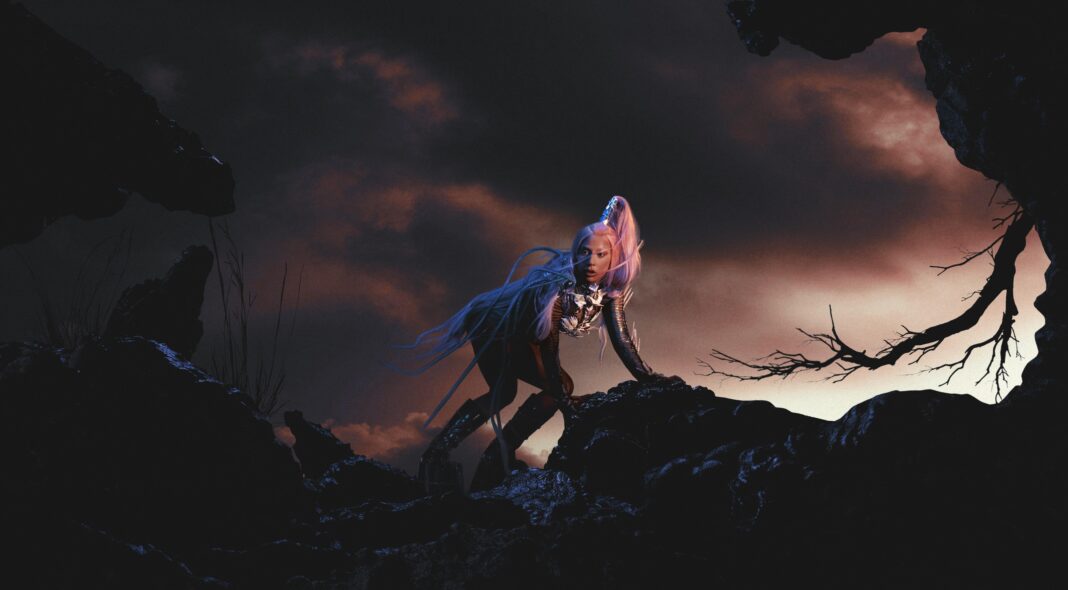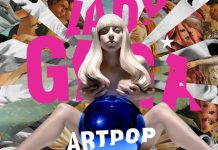2008 was an unstoppable era of chart classics. From Britney Spears’ ‘Womanizer’ to Beyoncé’s smash song ‘Single Ladies’, nobody could’ve predicted the breakout success of a young Stefani Germanotta. Emerging under the stage name Lady Gaga, Germanotta quickly built her reputation around defiant theatrical pop. The artist was never far behind a bold statement and her debut album, The Fame, was a compilation of raw dancefloor hits — it was pure chaotic energy.
Gaga’s beginning was one filled with overindulgent campy outfits that toed the line of scandalous creativity and artistic flair. Whether it was gothic crowns or over-exaggerated hair bows, the New Yorker’s sound and style certainly grabbed attention. A year later, 2009 saw the reissue of her debut album which reaffirmed that the upcoming artist was anything but a one hit wonder. Gaga continued to roll out experimental and unpredictable versions of her melodramatic personas. If you weren’t prepared for ‘The Fame’, then ‘The Fame Monster’ was its warped, wild sibling. Cut from the same cloth as its predecessor, the follow up cemented Gaga’s place as a burgeoning queen of queer pop. If you needed any convincing, the EP stewed together a dynamic mix of glitchy electro pop and line by line drama. It’s impossible to forget the provocative ‘Bad Romance’, the dramatic love story of Alejandro’, or the iconic duet between Gaga and Beyoncé on ‘Telephone’; it truly was a serve.
For me, 2009 marked the start of a turning point for the trailblazing artist. Gone were the days of speculation as Gaga began to put rumours to rest. In an interview with Barbra Walters, the pop star came out and explained that her chart topping single ‘Poker Face’ was in fact about her experiences with bisexuality. Later that year, the then 23-year-old delivered one of the VMA’s most mic-drop worthy performances. No, I’m not talking about when Kanye West decided to interrupt and embarrass a teen Taylor Swift, I’m actually referring to Gaga’s gothic-inspired ‘Poker Face’ and ‘Paparazzi’ mashup. Donning white thigh high boots, an ornate bead studded mask, and a tightly clad off-white crop top which sat under a draping translucent cape, it was an outfit which spared no grandeur. Yet, even the dramatic fancy mansion background couldn’t steal the show. Unexpectedly, mid-set, fake blood began to trickle from the singer’s rib cage as she wailed through the final verses of ‘Paparazzi’. Ending in top tier theatricality, hanging from an all-white rope, her person specked in blood while faux camera lights burst around her, Gaga dangled on stage letting the symbolism and drama of her performance sink in.
Fast forward a few years, the artist released her widely recognised second studio album, ‘Born This Way’. The record’s self-titled single became a gay anthem with lyrics pushing visibility which, to this day, makes many of us feel seen and heard. That said, I was never a fan of her choice terms “chola” or “orient”, but, largely, the rest of the song pushed an inclusive, accepting theme: No matter gay, straight, or bi / lesbian, transgender life / I’m in the right track, baby/ I was born to survive. The record also birthed the wonderfully controversial ‘Judas’ which climbed into the charts and ‘Americano’, a song which focused on a same-sex relationship received acclaim from fans. With two studio albums to her name, Gaga and the gays were taking over the charts.
‘ARTPOP’ swung by in 2013 and, for many, was the artist’s most divisive release. Although the singer maintained some momentum, the lacklustre return brought in noticeable highs, specifically ‘Applause’, but on the whole, it was a hard album to advocate for. An unexpected mixture of hip-hop leanings and disco pop, it was Gaga’s more mediocre full-length album to date. Three years later ‘Joanne’ followed; a frank country-rock inspired album about family trauma which played it relatively safe compared to Gaga’s past extravagance. In short, Mother Monster’s style seemed to be changing. Like ‘ARTPOP’, the album graced us with the odd standout song – in this case it was ‘A Million Reasons’ – but, as a whole, it lacked the signature beat heavy choruses and singalong melodies we all loved.
The vibrant campiness of Gaga seemed to be dimming, until ‘Chromatica‘ arrived. Chalking up as the singer’s six studio album, this disco pop fantasia has lasted two weeks top of the UK charts despite the dreariness of lockdown. A force to be reckoned with, ‘Chromatica’ saw the rival of Gaga’s title as a queer anthem maker. Lead single ‘Stupid Love’ is a euphoric floor filling dance tune that is impossible to hate – well, I definitely don’t hate it. As the rest of the album blends orchestral tracks with EDM and disco pop, there is no denying it is an album packed with spectacle and fun beats. ‘Rain On Me’ (with Ariana Grande) has been my perfect lockdown pick me up. Although the album deals with darker topics e.g. mental health, loss and more, it still ties back to Gaga’s classic style of preppy pop. Filling her album with class collaborations with BLACKPINK and Elton John, as well as Grande, there’s no doubt this record proves Gaga has gotten her groove back. Like ‘The Fame’ or ‘Born This Way’, ‘Chromatica’ will serve as a powerful pop validation for someone, young or old, looking to be seen.







